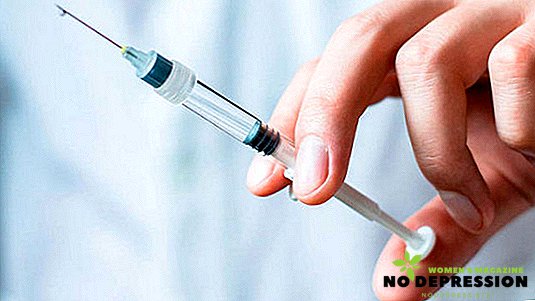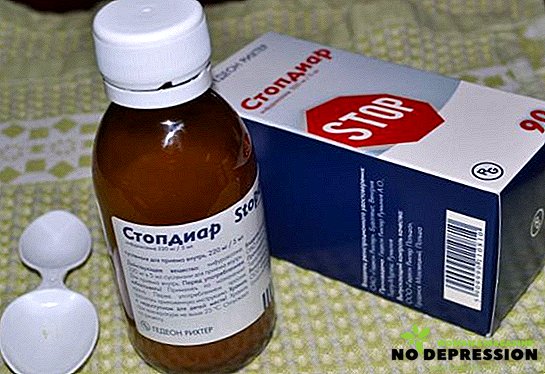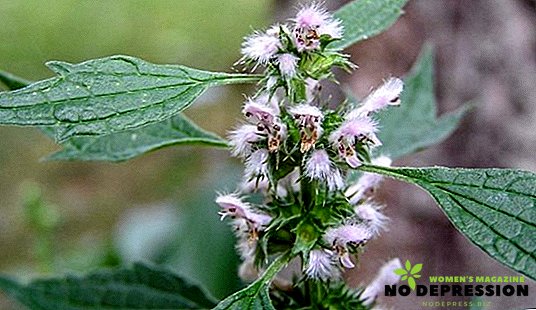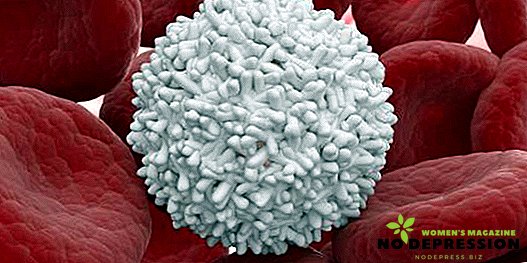For centuries, people have fought against such a deadly disease as smallpox, which covered the continents, claimed the lives of millions of people. Vaccination against this disease allowed to eliminate the infection due to general vaccination, which began to be carried out in 1967.

What is the danger of the disease
Smallpox is the oldest viral infection, the first mention of which dates from the IV-III millennium BC. The causative agent of the disease is Variola major, which is fatal in 80% of cases, and Variola minor, which has a lower pathogenicity. Smallpox is attributed to particularly infectious viral infections, the disease has a cyclical course.
As noted in historical documents, throughout the 18th and 19th centuries, the disease annually claimed up to 25% of the adult and 55% of the child population of European countries.
And only at the end of the last century it was possible to completely eliminate smallpox in the developed countries of the world.
The first smallpox vaccine in Russia was given in 1768 by Dr. Thomas Dimsdale. To prevent the population from resisting, Catherine the Second herself decided to set an example.
With the development of infection, the following symptoms are noted:
- the occurrence of a characteristic rash covering the skin and mucous membranes;
- fever;
- severe intoxication of the body;
- obiazovanie scars and scars on the skin after recovery.

A similar disease is chicken pox, which also provokes the development of skin rashes.
Viral infection usually develops in childhood, easily tolerated. However, if a disease occurs in adults, complications are possible.
Therefore, everyone can be vaccinated against chickenpox.
Types of vaccines, their principle of action
In Russia, this vaccination is carried out only for those who have an increased risk of contracting this deadly infection. Vaccination involves the use of the following types of vaccines:
- Smallpox live dry. It was developed on the basis of a live and weakened pathogen smallpox, which is grown on the skin of calves. The composition also uses phenol, peptone as stabilizers, glycine as a solvent. The vaccine allows you to create a reliable immunity after the first vaccine.
- Smallpox inactivated. This drug is based on the dead particles, which are also grown on the skin of animals. Solvent - saline. This vaccine is usually used as part of a two-step immunization, and it can only be used for the first vaccination.
- Fetal live. This vaccine is available in tablet form. Can be used for revaccination, that is, to enhance the immunity of those who have already been vaccinated against smallpox. Within 30 minutes after taking the pill, you should refrain from drinking, eating, smoking.
All vaccines have a similar principle of action: vaccination mimics the infectious process, with the result that the body begins to produce specific antibodies. This will allow the future to quickly recognize and neutralize the deadly virus.

Who may need a vaccine
Mass vaccination in Russia is not carried out for more than 30 years, however, if necessary, it can be given at any age over 12 months with no contraindications.
However, it is mandatory to put the following groups of people:
- laboratory workers who work with viruses;
- medical staff in infectious disease wards;
- disinfection specialists;
- surveillance specialists.
Moreover, it is imperative to undergo immunization once every 5 years. And if a person’s work is connected with the study of the culture of the causative agent of black smallpox, revaccination is carried out once every three years. According to the experts, if a case of infection appears on the territory of the Russian Federation, the vaccination must be carried out by everyone who lives in the region.
Contraindications
Should not be vaccinated against smallpox in some cases:
 during pregnancy or when breastfeeding;
during pregnancy or when breastfeeding;- with hypersensitivity to the drug;
- in the presence of severe allergic reactions, such as drugs, food, etc .;
- with bronchial asthma, vasculitis, diabetes, Graves disease;
- with pancreatitis, pathologies of the kidneys and liver, heart;
- with post-traumatic pathologies of the central nervous system;
- in severe immunodeficiency;
- with psoriasis;
- in the period of the acute course of any infectious pathology or in the exacerbation of a chronic disease.
Features of vaccination against smallpox
The vaccine is carried out in two stages:
- the diluted drug is injected into the upper part of the shoulder;
- a week later, you can proceed to the second stage - vaccination involves the introduction of the drug by scarification or multiple injections.
In the first case, 1 drop of liquid is applied to the skin, then using a special tool, leave a scratch. The vaccine is rubbed, leaving the skin open for 5-10 minutes. The second technique involves the use of a special bifurcation needle - it is dipped into the preparation, after which 5-15 injections are made on the skin.
Primary vaccination
The first vaccination involves the use of an inactivated vaccine, which is well tolerated - only 30% of patients note the appearance of redness, compaction 1-2 days later after drug administration. In some cases, a slight increase in temperature may be noted. However, these states pass in just a couple of days.
When immunizing with a one-step method, the symptoms will be more vivid: patients note the formation of vaccination elements at the site of administration. After three days, swelling may occur, a papule appears.
After a couple of days after that, a red rim may form around it, the papule itself turns into a vial with a liquid. Only three weeks later a scar appears.
Symptoms such as:
- headache;
- heat;
- swollen lymph nodes;
- general weakness.

After 7-9 days, you can evaluate the effectiveness of the vaccine. When pustules appear, it can be considered that the vaccination was successful; otherwise, secondary vaccination is needed, but on the other hand.
Secondary vaccination
In the case of secondary vaccination, the drug is injected into the shoulder area with the help of a special needle. After the procedure, minor reactions may occur, such as swelling, the appearance of papules, a slight fever, general malaise. Usually, these symptoms disappear within a week.
Possible adverse reactions
After immunization, such adverse reactions may occur:
- a scar appears;
- Ospina develop;
- vaccine eczema is formed, especially often in children with a history of neurodermatitis (leading to the appearance of pustules on the mucous membranes, skin), if left untreated, meningoencephalitis may develop.
Often, complications can develop when vaccination is carried out against the background of diseases in which immunization is considered contraindicated. In such situations, the following conditions may occur:
- generalized vaccine, in which there may be multiple rashes on the skin and mucous membranes;
- encephalomyelitis;
- necrotic vaccination, as a result of which the tissues in the area of smallpox eruptions die off;
- exacerbation of chronic diseases.
Chicken Pox Vaccination
Since 2008, in Russia, chickenpox vaccination (chickenpox) has been included in the national vaccination calendar, which is associated with serious complications that may occur after an illness.
Thanks to vaccination, you can avoid:
- severe complications such as encephalitis, lymphadenitis, myocarditis, and the probability of the disease is 1%;
- recurrence in the form of herpes zoster;
- scars that usually appear after scratching.
Vaccination is best at an early age. However, very many people refuse it, which is why very severe symptoms can be observed in adulthood with chickenpox disease. After all, this disease occurs in adults is much harder than in children: severe fever, rash, itching, high fever. Therefore, it is recommended to vaccinate even people over 20 years old, especially girls who are planning a pregnancy, because chickenpox can cause the appearance of abnormalities in the fetus.


 during pregnancy or when breastfeeding;
during pregnancy or when breastfeeding;









